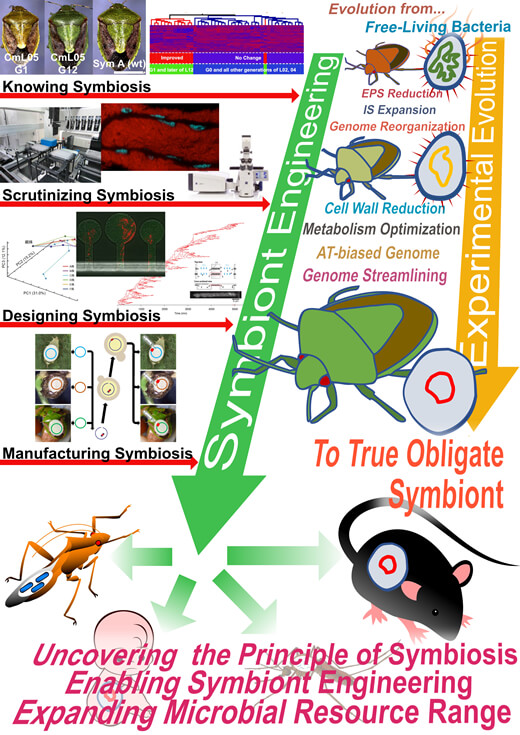We present an ultimate form of understanding the mechanisms of symbiosis.
Project overview
In nature, symbiotic associations with microorganisms are ubiquitously found, which often play pivotal biological roles in animals, in plants and even in human. Now “symbiosis” and “microbiome” are among the important keywords not only in basic biology but also in agriculture and medical science. However, highly intimate symbiotic associations are difficult to work on experimentally, because the symbiotic partners are usually non-model organisms that are integrated into an almost inseparable biological entity. Here, the symbiotic microorganisms cannot survive outside the host and thus are mostly uncultivable. Such statements as “nobody has seen the process as to how intimate symbiotic associations have evolved” and “genetic engineering and functional analysis of uncultivable genome-reduced symbiotic bacteria are very difficult” plainly depict the situation under which understanding of symbiosis has been severely hindered.
This project aims at bringing about breakthroughs to overcome these difficulties, on the basis of the establishment of novel insect-E. coli and mammal-E. coli experimental symbiotic systems and the development of recent genome engineering technologies, thereby drastically promoting our understanding of symbiosis.



